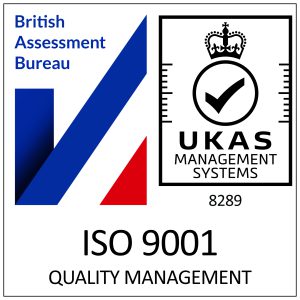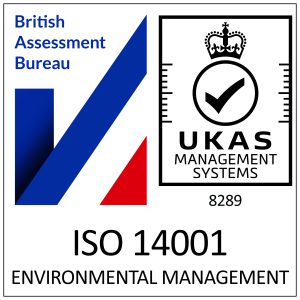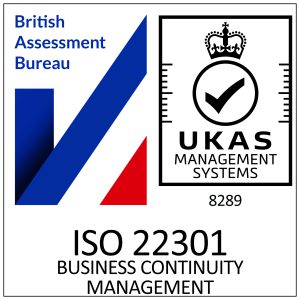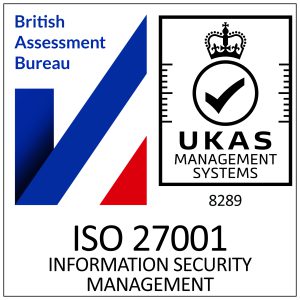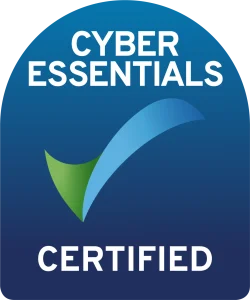Guide to DBS Checks in the UK: Safeguarding Vulnerable Groups
Roles Requiring DBS Checks
DBS Checks (also known as Disclosure and Barring Service), are essential in the commitment to safeguarding vulnerable groups in the UK. With a history rooted in ensuring safety, these checks serve as a necessary tool for various sectors and roles across the nation. Whether it’s someone teaching our children, caring for older people, or even managing our finances, the need for a DBS Check stems from a place of trust and responsibility. In this guide, we’ll explore not just the roles that require these checks but also the different levels of DBS Checks available in the UK and their implications for both employers and employees.
Why Some Roles Require DBS Checks
Ensuring safety is crucial, especially when it concerns those who are most vulnerable: children, older people, and individuals with specific disabilities. Many professions and roles interact directly with these groups in the modern world. As such, employers and society have an inherent duty to ensure these interactions are safe and trustworthy.
In legal terms, numerous sectors have acknowledged this duty and have made DBS Checks a compulsory prerequisite. Yet, beyond the sphere of legality, these checks fulfil a deeper objective. They foster trust amongst the public, guaranteeing that individuals in positions of responsibility have undergone thorough DBS Checks. Whether it pertains to a school confiding in a teacher with the educational and welfare responsibilities of its pupils, or a family employing a carer for an elderly family member, the reassurance provided by a DBS Check is immeasurable.
Furthermore, for many organisations, reputation is everything. A single mishap or oversight can tarnish years of hard work and dedication. Hence, rigorous vetting through DBS Checks becomes a means of compliance and a way of upholding an institution’s reputation and trustworthiness in the public eye.
Understanding Different Levels of DBS Checks
DBS Checks come in varying levels, each designed to cater to different roles and responsibilities. Grasping these levels is crucial for employers determining the required depth of checks and individuals applying for positions.
- Basic DBS Check: This is the most elementary level, detailing any unspent convictions on an individual’s criminal record.
- Standard DBS Check: A step up from the primary check, this discloses both spent and unspent convictions, reprimands, cautions, and final warnings.
- Enhanced DBS Check: Going beyond the standard check, this includes additional information held by local police deemed relevant to the role.
- Enhanced DBS with Barred Lists: The most comprehensive check, this not only provides details covered in the Enhanced DBS check but also checks against lists of individuals barred from working with vulnerable groups like children or adults.
Awareness of these categories is imperative as it directly influences the roles one can occupy and the trust that can be placed in them.
DBS Checks role in the Education Sector
The education sector is one where trust, safety, and credibility cannot be overstated. After all, educators shape the future, working closely with young, impressionable minds.
- Teachers and Teaching Assistants: Given their direct and regular interaction with students, they typically require an Enhanced DBS with Barred Lists check. This ensures they have no history that could endanger or negatively influence students.
- School Administrative Staff: While they may not constantly interact with students directly, their proximity necessitates a Standard or Enhanced DBS check, depending on their specific duties.
- Extracurricular Instructors (e.g., sports coaches): These professionals work closely with students like teachers. Thus, an Enhanced DBS check is often mandatory.
- University/College Staff: University staff may need either a Standard or Enhanced DBS check, depending on the nature of their interaction with students, especially those under 18.
It’s worth noting that beyond legal obligations, many educational institutions opt for rigorous checks as a testament to their commitment to student safety and well-being.
DBS Checks in Healthcare and Social Care Roles
The healthcare and social care sectors are entrusted with the well-being and care of individuals who are most vulnerable. This immense responsibility requires a stringent vetting process to ensure that every professional fits the task.
- Doctors, Nurses, and Other Medical Professionals: Given their work’s sensitive nature and proximity to patients, these professionals typically undergo an Enhanced DBS with Barred Lists check. This ensures that they have a clean record, fostering trust between them and their patients.
- Care Home Workers: Individuals in care homes, often the elderly or those with special needs, require attentive care. As such, care home workers usually need an Enhanced DBS check to ensure they’re fit to serve this vulnerable group.
- Social Workers: Tasked with assisting some of the most vulnerable members of society, social workers require an Enhanced DBS with Barred Lists check, ensuring their background aligns with the trust placed in them.
- Therapists and Counselors: Given the intimate nature of their work, these professionals often need an Enhanced DBS check to ensure the safety and trust of their clients.
The rigorous vetting in healthcare and social care roles is not just about compliance but about upholding the integrity of professions that touch lives daily.
DBS Checks in Childcare and Early Years
Children are among society’s most vulnerable members, making safeguarding in roles related to their care of paramount importance.
- Nursery Staff: As primary caregivers to young children during crucial developmental years, nursery staff are typically required to have an Enhanced DBS with Barred Lists check.
- Childminders: Given their role in looking after children in the absence of their parents, childminders also generally require an Enhanced DBS with Barred Lists check.
- Foster Carers and Adoption Agents: These individuals play pivotal roles in providing loving homes to children. The vetting process here, including an Enhanced DBS with Barred Lists check, is rigorous to ensure the safety and well-being of every child placed in a new home.
Protecting our youngest members of society is a collective responsibility, and the stringent DBS checks in this sector highlight the significance of this duty.
DBS Checks in the Financial Sector
In a world where financial fraud and mismanagement can have widespread consequences, vetting those in the financial sector is paramount. It’s not just about protecting assets but about maintaining trust in the very institutions that underpin our economy.
- Positions with Significant Financial Responsibility: This includes roles like bank managers, financial advisors, and senior finance executives. They typically undergo a Standard DBS Check due to the trust placed in them concerning financial transactions and advice.
- Access to Sensitive Financial Data: Data analysts, IT staff in banks, and others with access to sensitive financial information usually need a Standard DBS Check. This ensures that they have a clean background, reducing the risk of potential data breaches or misuse.
Transparency and trust are foundational in the financial sector. DBS checks are a testament to a professional’s integrity, reinforcing public confidence in financial institutions.
DBS Checks for Volunteers and Charity Workers
Charities and volunteer-driven organisations often cater to vulnerable groups. Thus, ensuring the individuals serving these groups are vetted is crucial.
- Roles Involving Direct Contact with Vulnerable Groups: Whether it’s helping in a children’s charity, assisting the elderly, or aiding those with disabilities, these volunteers typically undergo an Enhanced DBS Check to ensure the safety of those they help.
- Positions of Trust within Charitable Organisations: This might include roles like treasurers, senior coordinators, or those handling sensitive information. A Standard or Enhanced DBS Check, depending on the specific duties, ensures that these individuals are fit for their roles.
While volunteering is often driven by goodwill, the organisations still have a duty of care towards those they serve. DBS checks in this sector are a testament to the balance between welcoming volunteers and ensuring the continued safety and trust of the beneficiaries.
DBS Checks in the Transport Sector
Transportation plays a vital role in the daily lives of millions, whether it’s commuting to work or school or accessing essential services. Ensuring that those responsible for this vital service can be trusted is crucial for public safety.
- Bus and Coach Drivers: Those who transport schoolchildren or special needs individuals typically require an Enhanced DBS Check. This ensures the safety of passengers, many of whom might be vulnerable.
- Taxi and Private Hire Drivers: Given the one-on-one nature of their service, these drivers often undergo an Enhanced DBS Check to ensure passengers’ safety during their commute.
- Railway Workers: Those in roles that involve direct contact with the public, such as ticket inspectors or platform staff, might require a Standard or Enhanced DBS Check, depending on the specific nature of their interactions.
Safety in transportation isn’t just about vehicles and roads; it’s also about the people operating and managing these services. DBS Checks help instil public confidence every time they board a taxi, bus, or train.
Roles in the Leisure and Tourism Industry
The leisure and tourism industry often brings joy and relaxation to many. However, due to its nature, there is a frequent and direct interaction with the public, making safety and trustworthiness pivotal.
- Hotel Staff: Those in roles that might require entering guest rooms, such as housekeeping or maintenance, often undergo a Standard DBS Check. This ensures guests’ safety and privacy during their stay.
- Tour Guides: Given their close interaction with tourists, including families with children, tour guides typically require an Enhanced DBS Check to ensure the safety and comfort of those they guide.
- Recreational Instructors: Whether a scuba diving instructor or a ski coach, these professionals often undergo Enhanced DBS Checks, ensuring participants’ safety in potentially risky activities.
- Event Staff: For events with a large influx of the public, including children and vulnerable individuals, staff may need a Standard or Enhanced DBS Check, depending on their specific roles and the nature of the event.
In an industry built on relaxation and enjoyment, ensuring the safety of participants and guests is paramount. DBS checks are crucial in upholding the industry’s reputation and the public’s trust.
Wrap-Up and Key Takeaways
In their various forms, DBS Checks have emerged as an essential tool in maintaining trust, safety, and professionalism across multiple sectors in the UK. The DBS system ensures a baseline of trustworthiness from educators to financial professionals, healthcare workers to volunteers.
- DBS checks are diverse: With different levels catering to various roles, it ensures that background screening is thorough and relevant.
- Safety first: Especially in roles dealing with the most vulnerable in society, DBS Checks safeguard against potential risks.
- Public Trust: More than just a legal mandate, DBS Checks reinforce public trust in vital sectors, ensuring that the professionals they interact with meet certain standards.
As we navigate an increasingly interconnected world, the significance of trust in our daily interactions cannot be overstated. DBS Checks are an essential cornerstone in this landscape, fostering a safer, more trustworthy society for all.
Final Thoughts
As we’ve journeyed through various sectors, it’s evident that the tentacles of DBS checks spread far and wide. They are not just a bureaucratic tick-box but a sincere commitment to public safety and trust.
Key Points to Ponder:
- DBS Checks are Universal: No matter the sector, there’s likely a role that requires vetting. It reflects our collective responsibility towards one another.
- Empower Yourself: If you’re an employer, ensure you’re up to speed with the necessary checks for your staff. If you’re seeking a role, familiarise yourself with the checks required and be proactive in obtaining them.
- A Safer Society: At the heart of it all, DBS checks aim to create a safer, more trustworthy environment for everyone.
In closing, the mission is clear for organisations like DBS Check Online: to facilitate a culture of safety and trust. By understanding and appreciating the importance of DBS checks, we can all play our part in fostering a society that values and prioritises the well-being of its members. Consider taking the next steps, whether obtaining a check for yourself or ensuring your organisation remains compliant. After all, a safer tomorrow begins with the choices we make today.
Resources and Further Reading
For those keen on delving deeper into the nuances of DBS checks or seeking guidance on specific sectors, here’s a compilation of resources to aid your understanding:
- Official Guidance from the UK Government: DBS checks: Guidance and Information. This comprehensive resource details the process, types, and criteria for DBS checks.
- DBS Check Online’s FAQ Section: Frequently Asked Questions. For answers to common queries and clarity on the services provided.
- Does a DBS Check show arrests? An article discussing into details if a DBS Certificate shows arrests.
- How to DBS Check an employee: A DBS check helps employers assess an individual’s criminal record and make informed decisions about their suitability for certain roles
- DBS Checks for Self Employed: As a self-employed professional, you want to ensure that you take the necessary steps to protect your clients and reputation. That’s why it’s crucial to understand the importance of DBS checks for self-employed individuals who work with children or vulnerable adults.
For those at the crossroads of hiring, seeking a job, or just curious, understanding DBS checks is essential in today’s professional landscape. While this article has provided an overview, these resources offer deeper insights and specifics, ensuring you’re well-informed and prepared, no matter your role.















